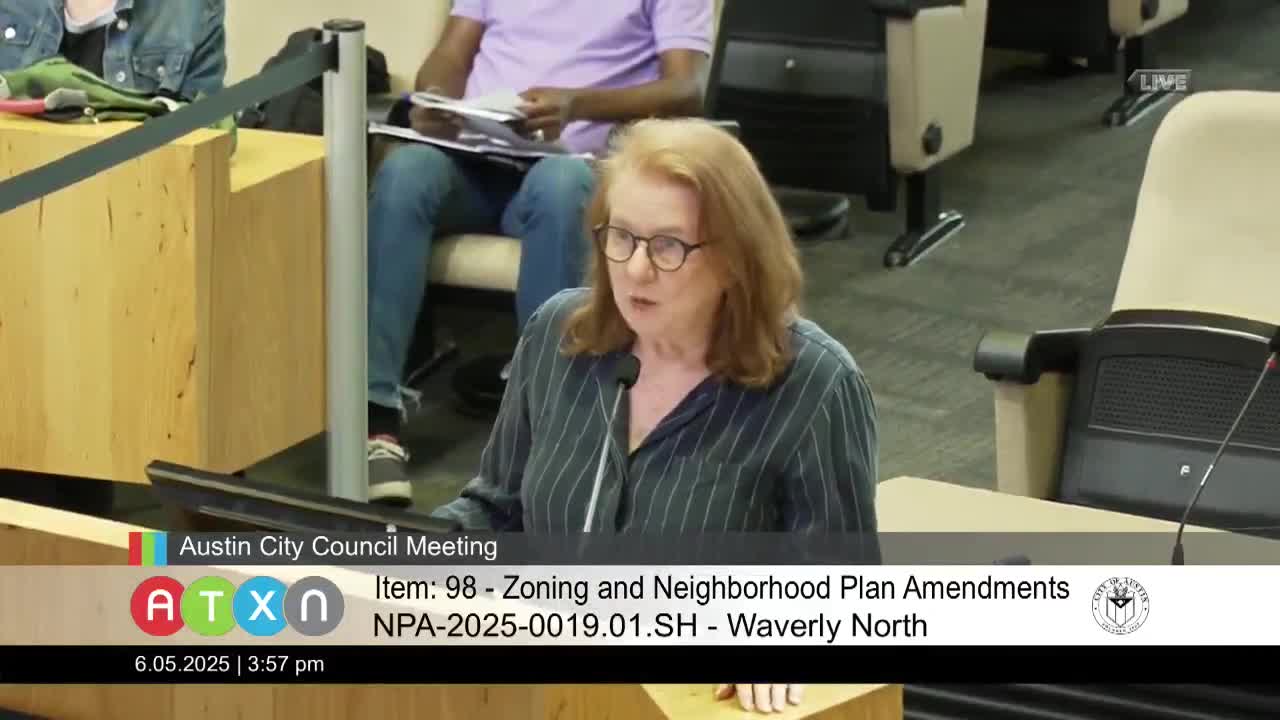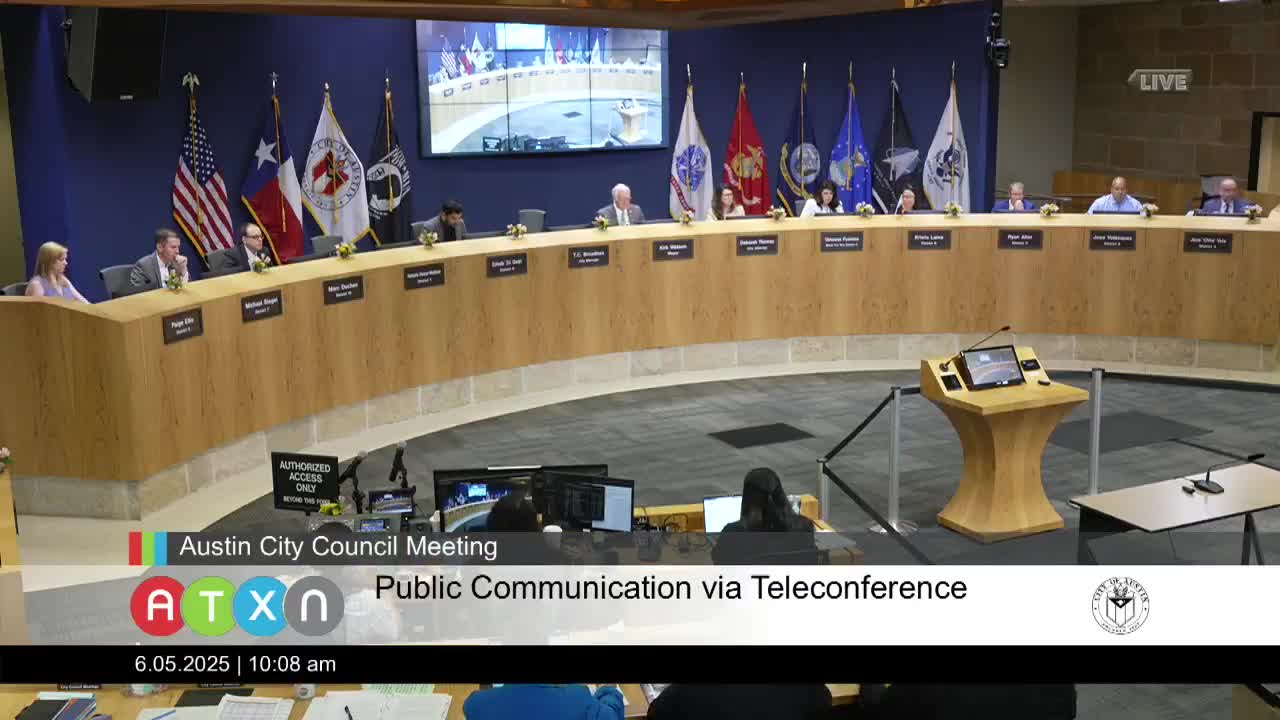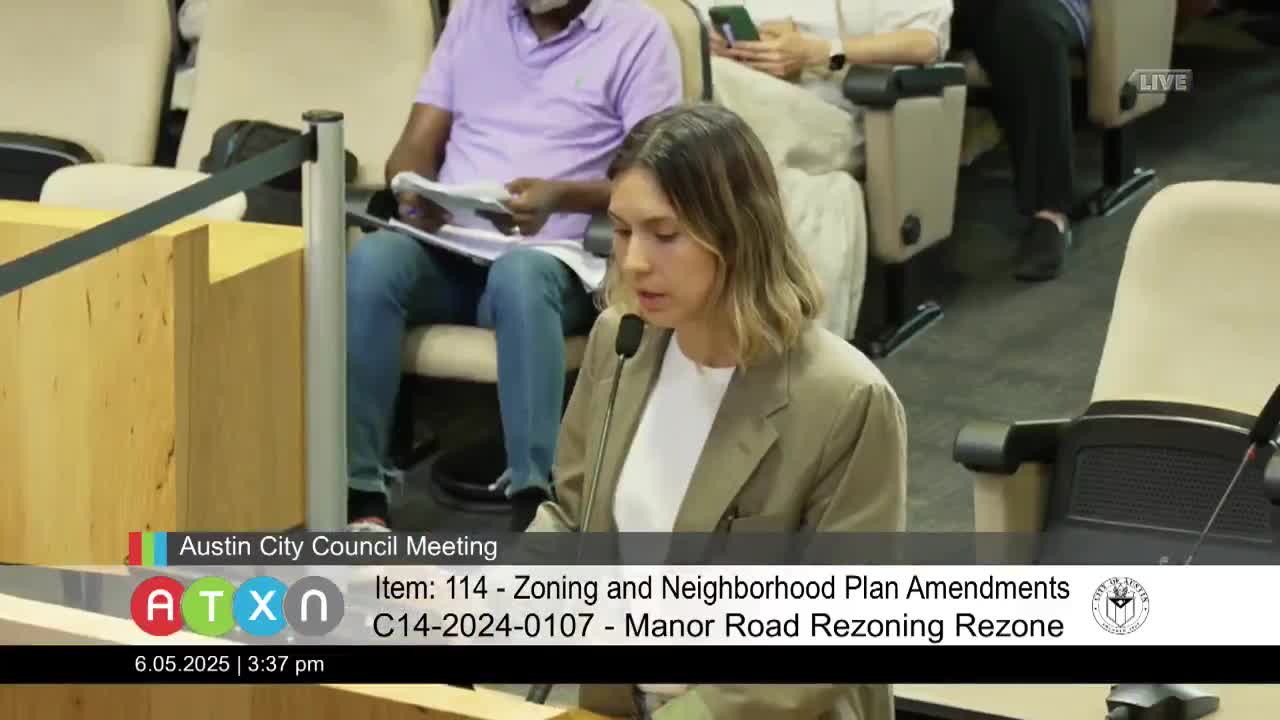Article not found
This article is no longer available. But don't worry—we've gathered other articles that discuss the same topic.

Council approves Acacia Cliffs rezoning despite tenants' pleas; DB90 debate to continue

Public pushes Austin council to favor local artists for AUS airport art; multiple art contracts approved on consent

